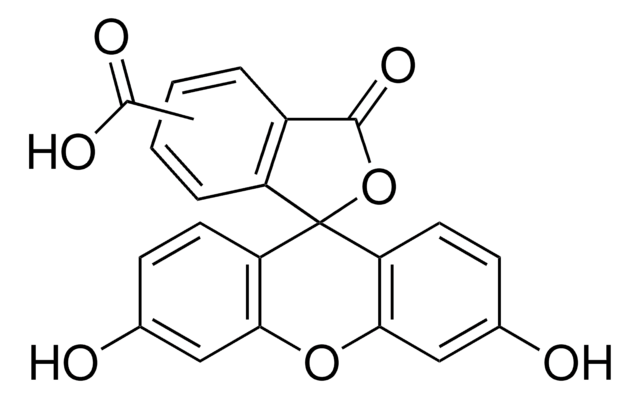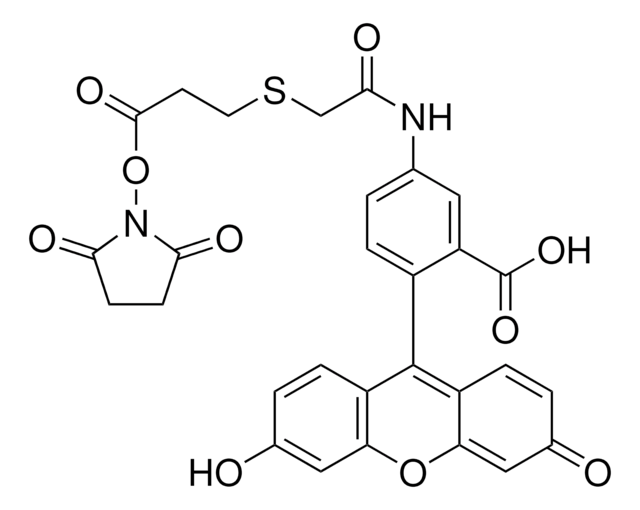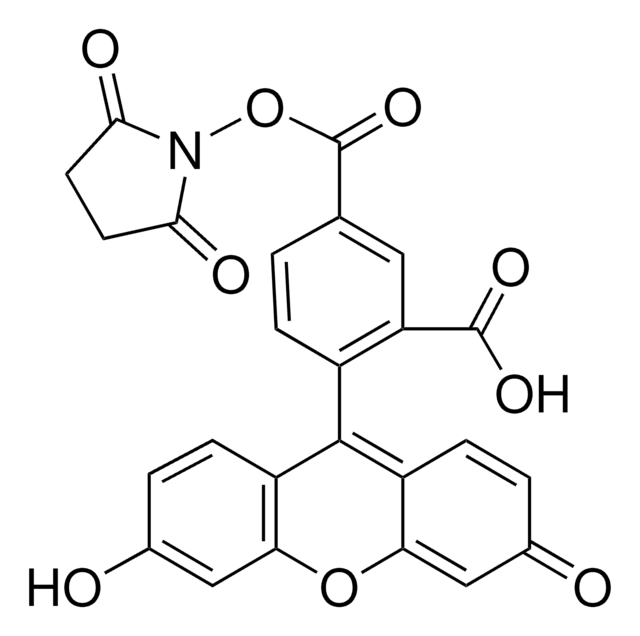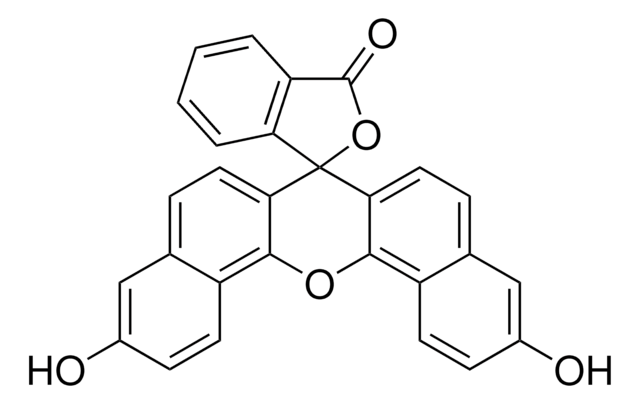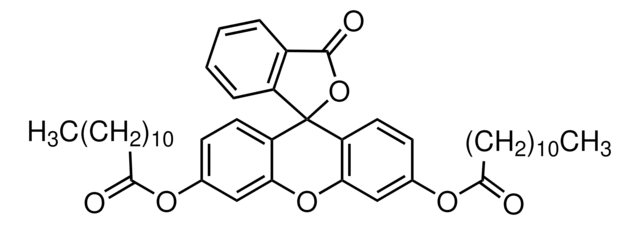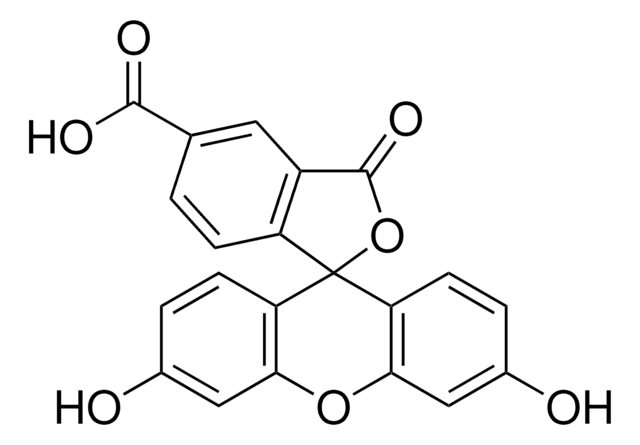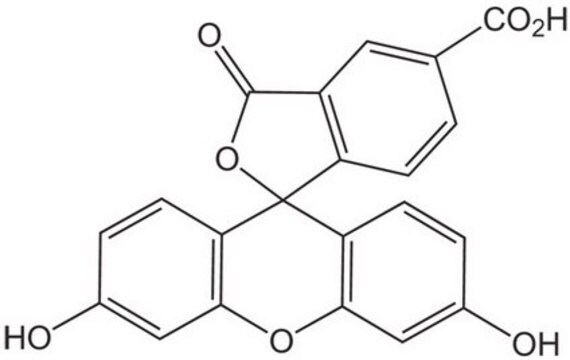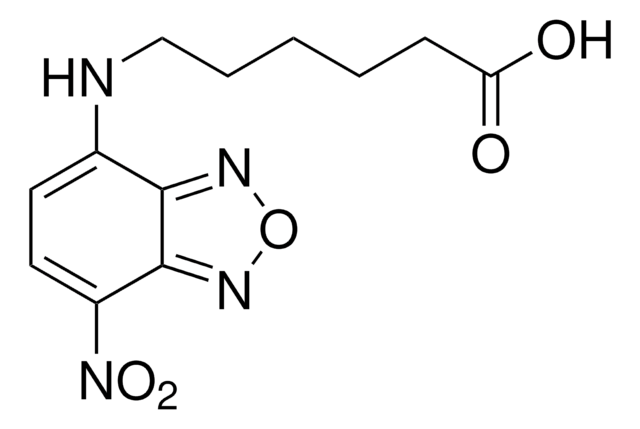추천 제품
Quality Level
분석
≥90% (HPCE)
형태
solid
solubility
DMF: soluble
DMSO: soluble
형광
λex 491 nm; λem 515 nm in 0.1 M Tris pH 9.0
적합성
suitable for fluorescence
저장 온도
2-8°C
SMILES string
OC(=O)CCCCCNC(=O)c1ccc2c(c1)C(=O)OC23c4ccc(O)cc4Oc5cc(O)ccc35.OC(=O)CCCCCNC(=O)c6ccc7C(=O)OC8(c9ccc(O)cc9Oc%10cc(O)ccc8%10)c7c6
InChI
1S/2C27H23NO8/c29-16-6-9-20-22(13-16)35-23-14-17(30)7-10-21(23)27(20)19-8-5-15(12-18(19)26(34)36-27)25(33)28-11-3-1-2-4-24(31)32;29-16-6-9-19-22(13-16)35-23-14-17(30)7-10-20(23)27(19)21-12-15(5-8-18(21)26(34)36-27)25(33)28-11-3-1-2-4-24(31)32/h2*5-10,12-14,29-30H,1-4,11H2,(H,28,33)(H,31,32)
InChI key
WEJBWDKWIFHWDE-UHFFFAOYSA-N
애플리케이션
포장
신호어
Warning
유해 및 위험 성명서
Hazard Classifications
Eye Irrit. 2 - Skin Irrit. 2 - STOT SE 3
표적 기관
Respiratory system
Storage Class Code
11 - Combustible Solids
WGK
WGK 3
Flash Point (°F)
Not applicable
Flash Point (°C)
Not applicable
개인 보호 장비
dust mask type N95 (US), Eyeshields, Gloves
시험 성적서(COA)
제품의 로트/배치 번호를 입력하여 시험 성적서(COA)을 검색하십시오. 로트 및 배치 번호는 제품 라벨에 있는 ‘로트’ 또는 ‘배치’라는 용어 뒤에서 찾을 수 있습니다.
이미 열람한 고객
자사의 과학자팀은 생명 과학, 재료 과학, 화학 합성, 크로마토그래피, 분석 및 기타 많은 영역을 포함한 모든 과학 분야에 경험이 있습니다..
고객지원팀으로 연락바랍니다.![6-[Fluorescein-5(6)-carboxamido]hexanoic acid N-hydroxysuccinimide ester suitable for fluorescence, ≥75% (HPLC)](/deepweb/assets/sigmaaldrich/product/structures/387/963/318bf7ad-cf3e-4963-b3df-a9631e1631ae/640/318bf7ad-cf3e-4963-b3df-a9631e1631ae.png)
